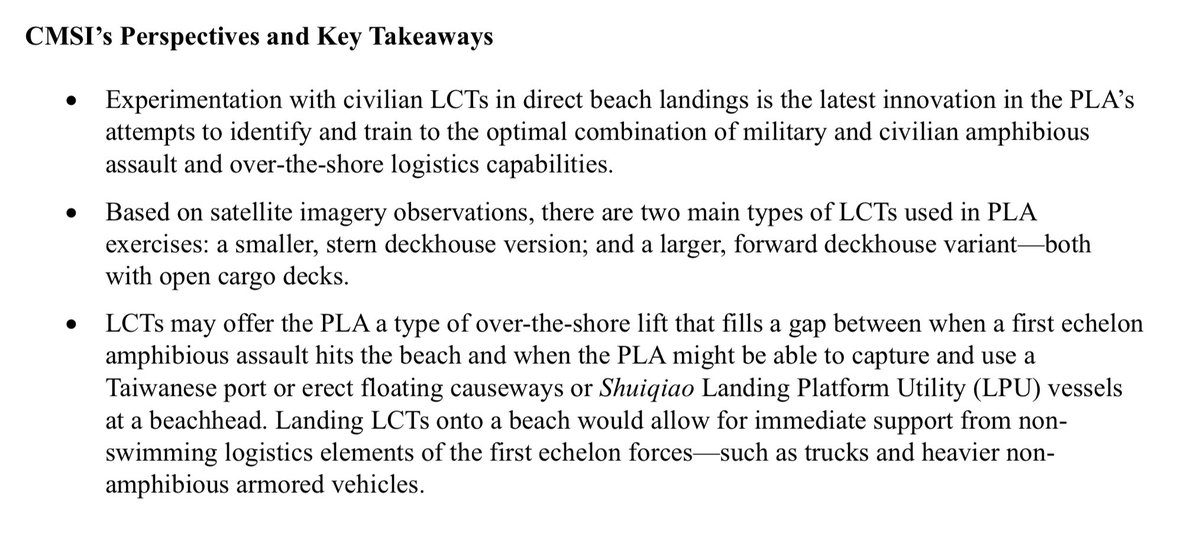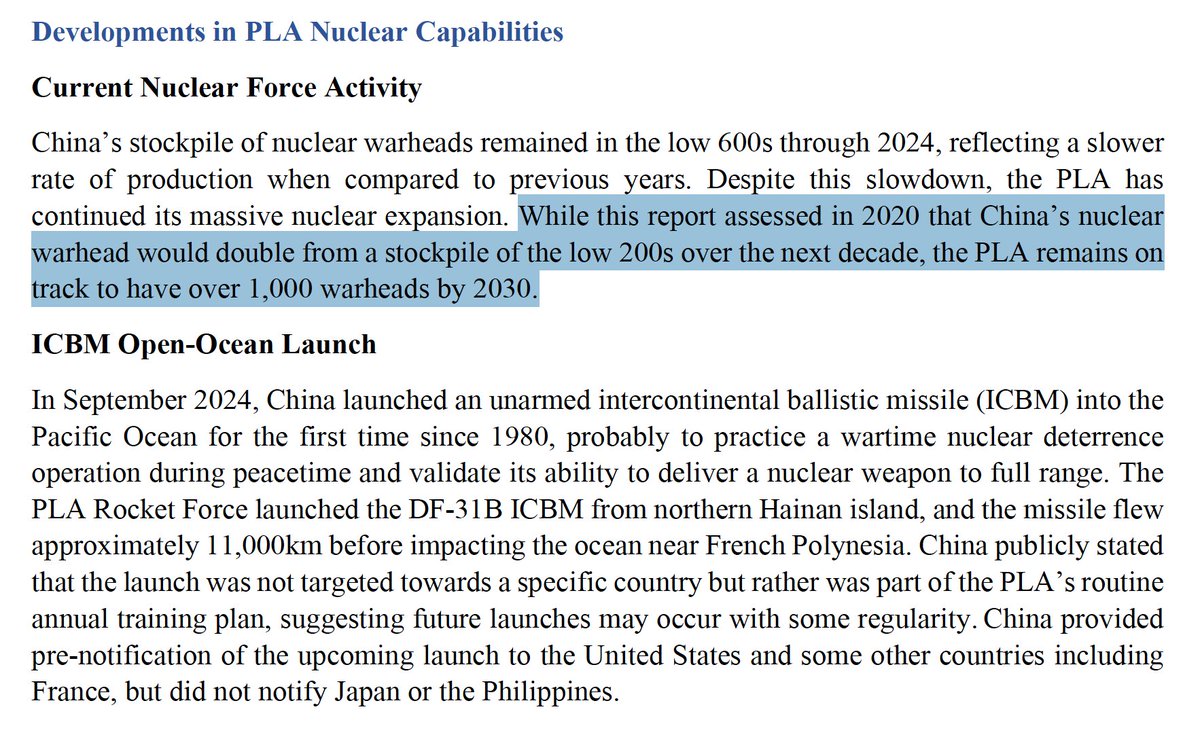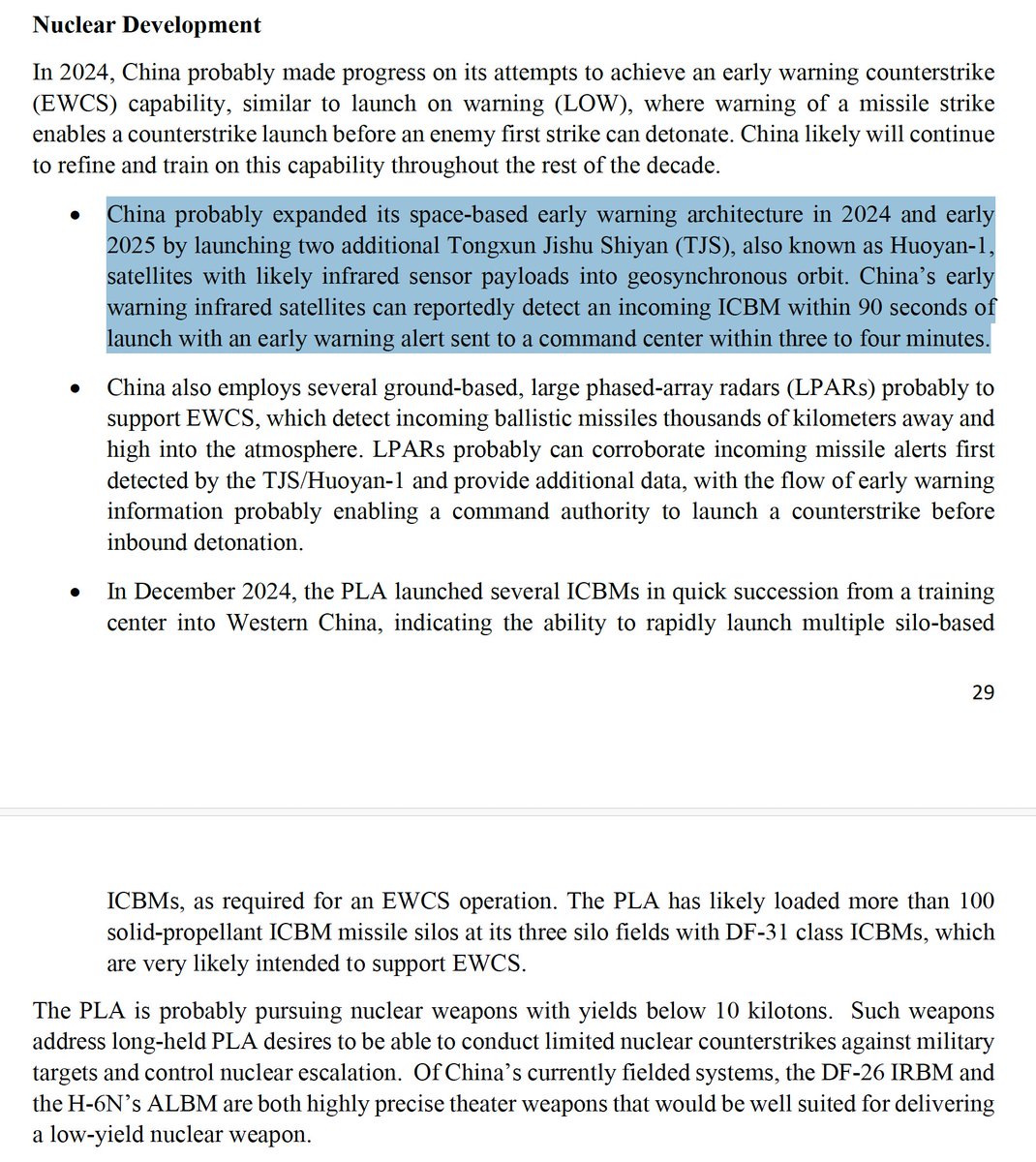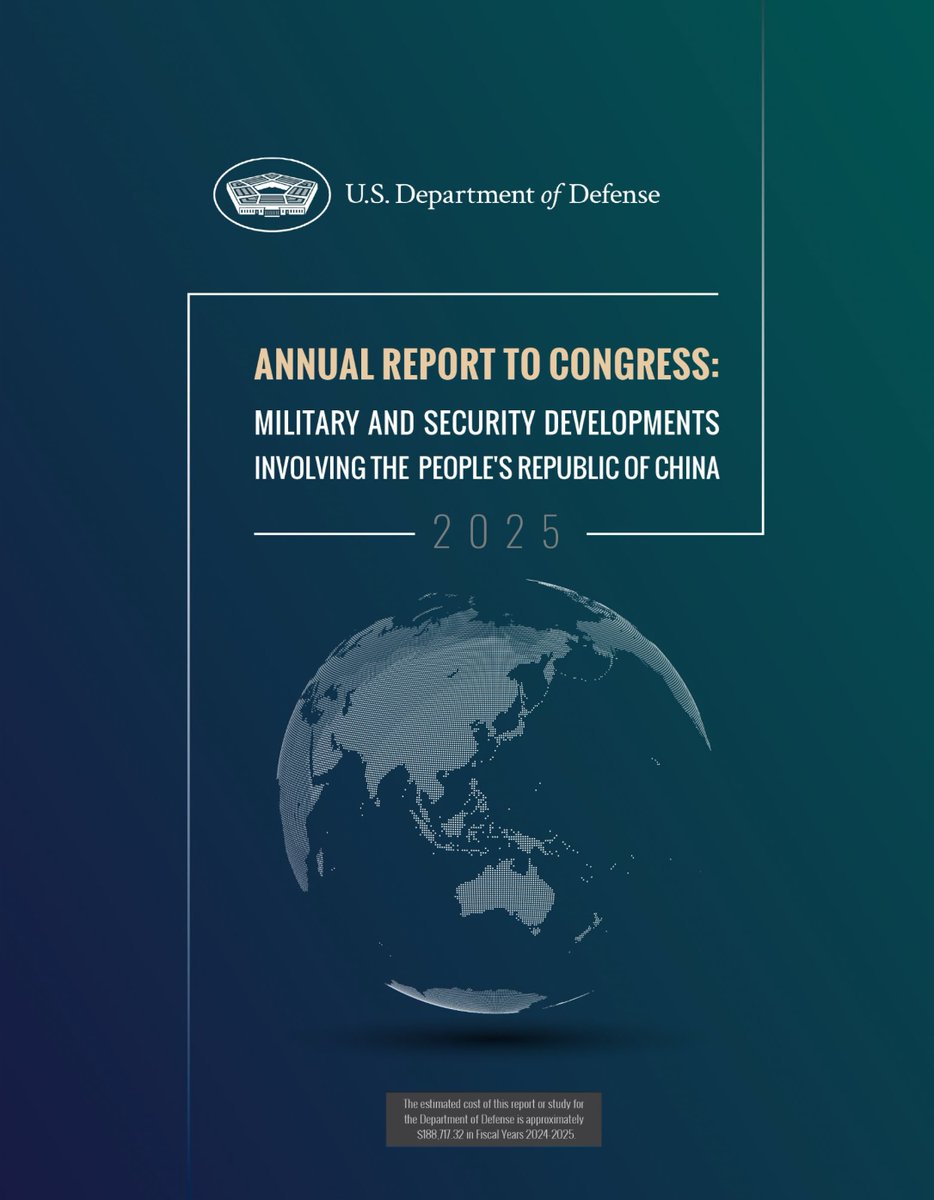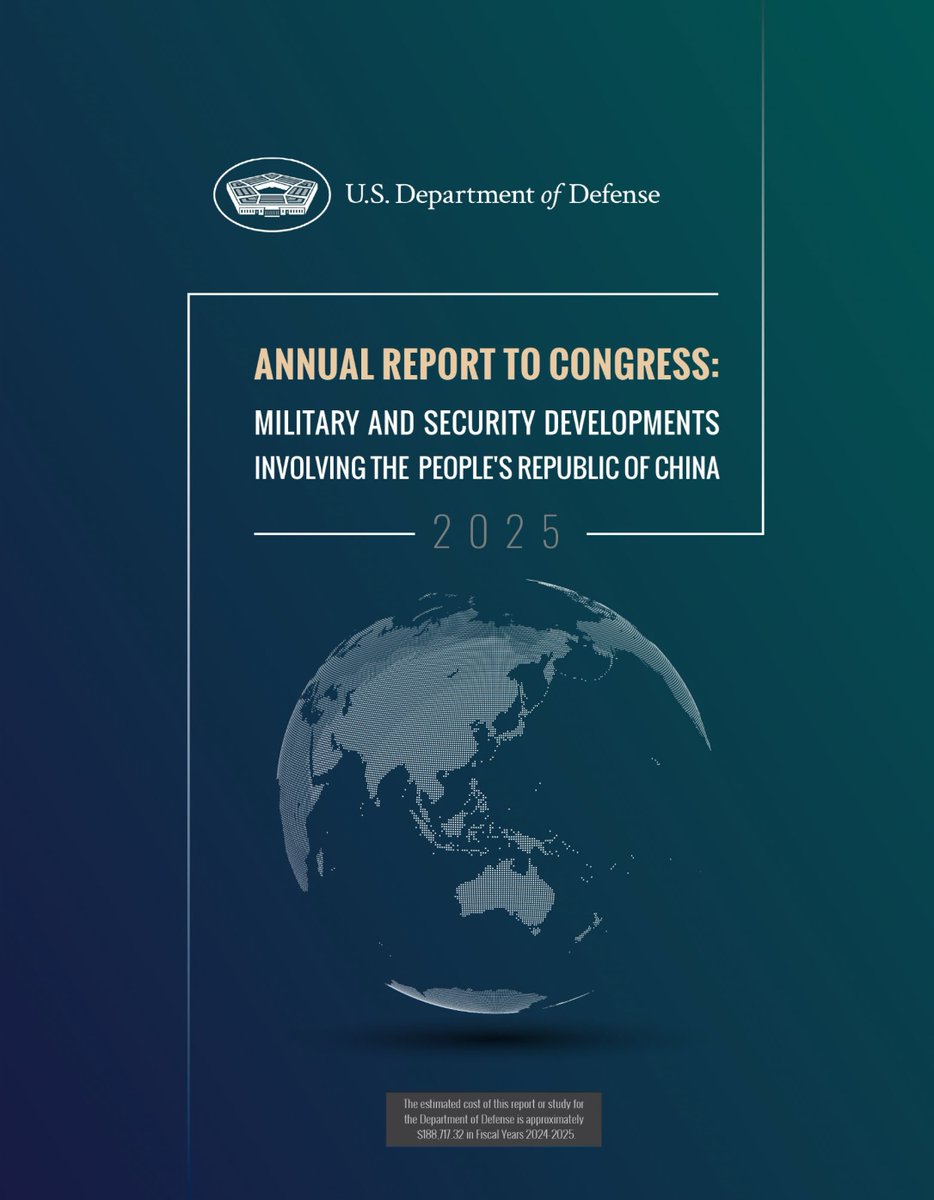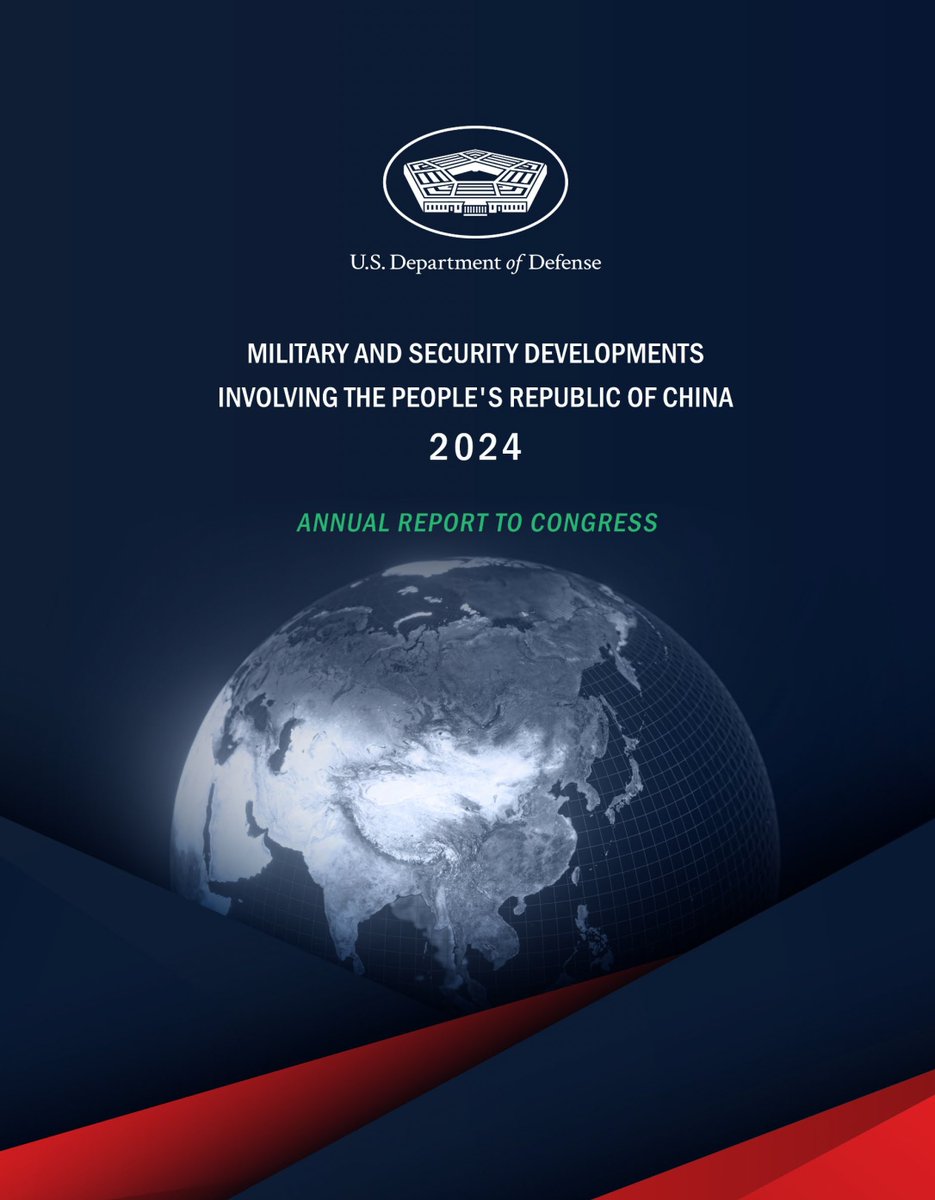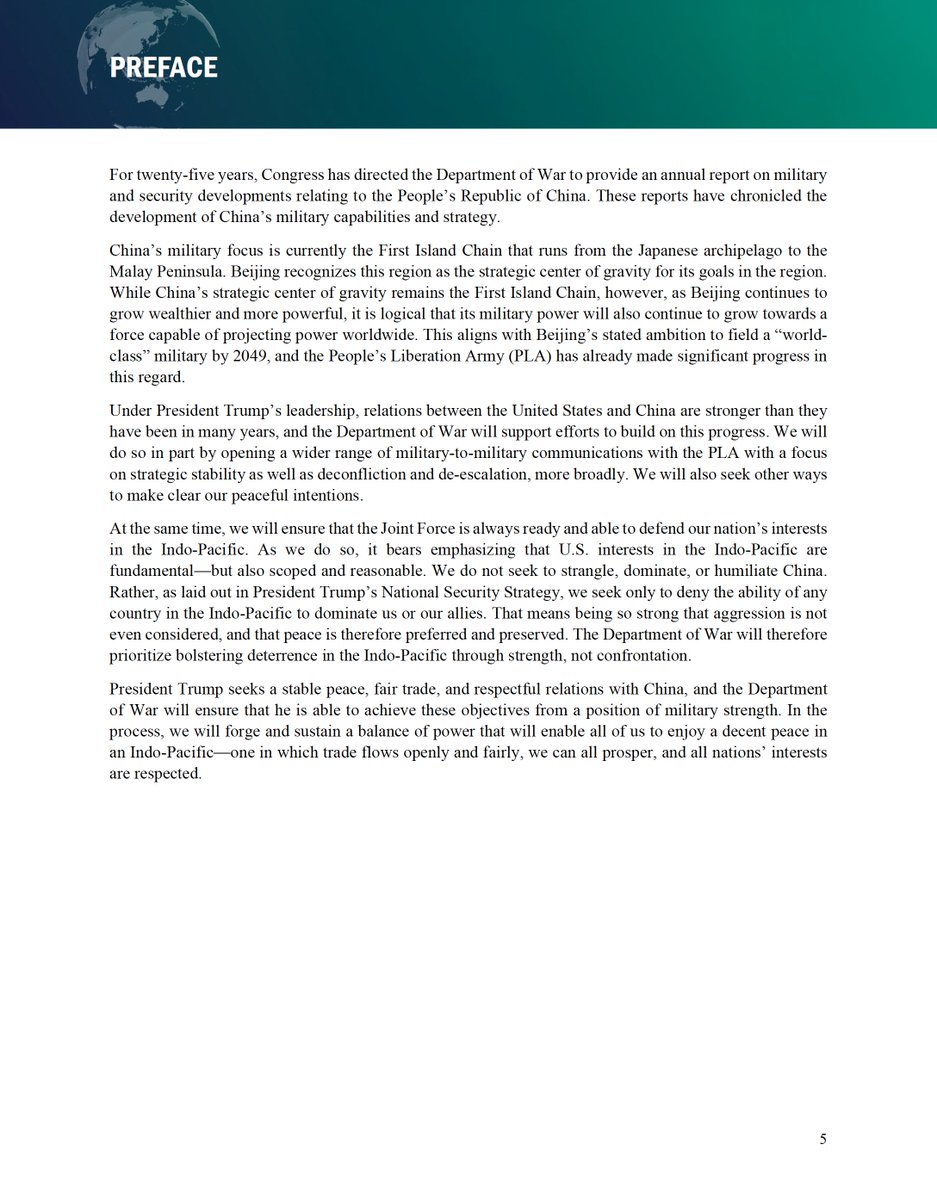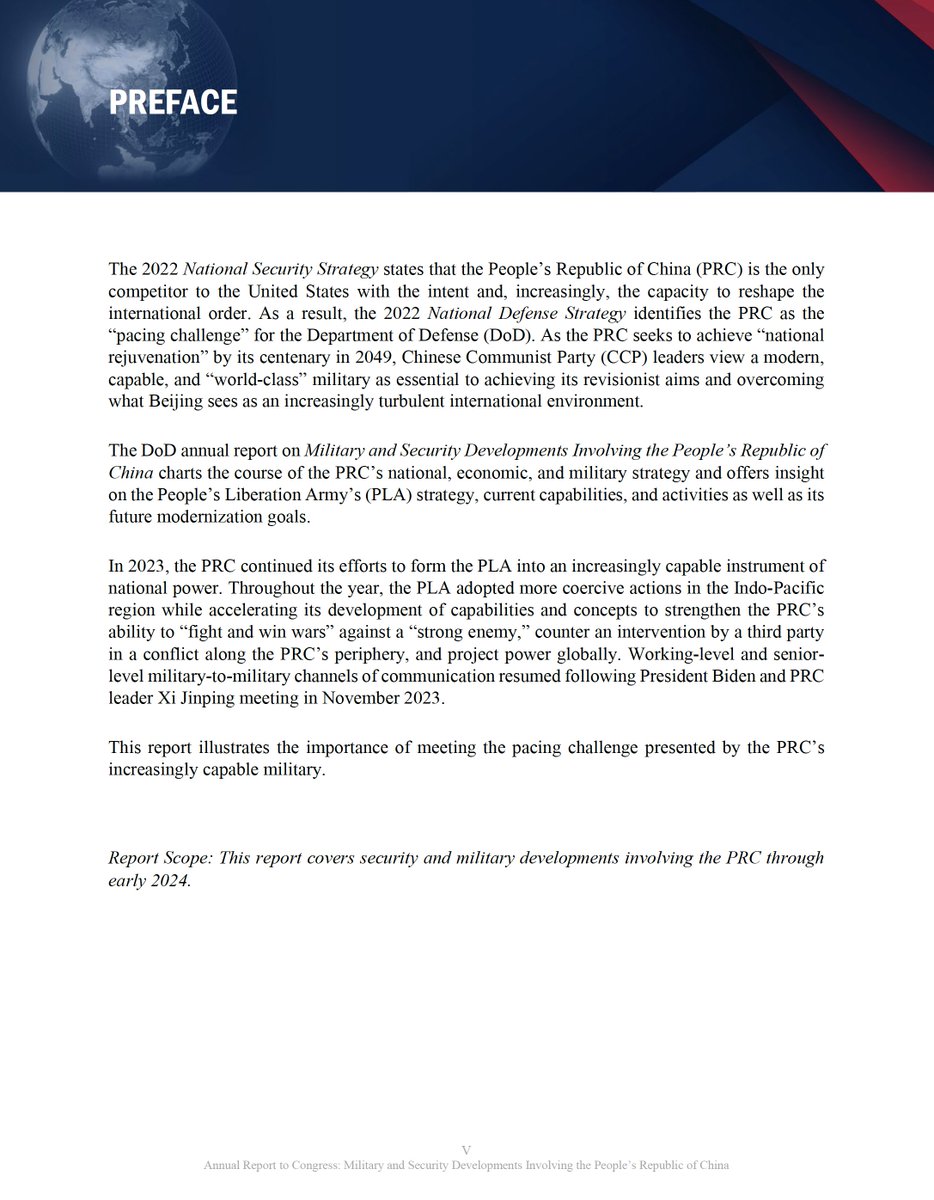A few thoughts on tonnage:
There's been wide discussion recently on the size of the Chinese Navy, largely driven by a recent DoD report's statement that the PLA Navy is now the "largest navy in the world" on the basis of its number of ships. washingtonpost.com/opinions/2020/…
There's been wide discussion recently on the size of the Chinese Navy, largely driven by a recent DoD report's statement that the PLA Navy is now the "largest navy in the world" on the basis of its number of ships. washingtonpost.com/opinions/2020/…
If you haven't been paying attention, the PLA Navy is engaged in a naval buildup the likes of which hasn't been seen in quite some time. In fact, the last time any nation build this many warships, and this fast, was during the legendary US "600-ship Navy" buildup of the 1980s.
China's recent buildup is, indeed, comparable in terms of the numbers of ships. As an example, during the years 1982-1986, the USN procured 86 warships, resulting in the the USN's fleet count peaking at the end of that decade. news.usni.org/2020/05/06/rep… 

Since we don't have a way (that I know of) to track PLAN warship procurement, we can instead track launches, which are visible via satellite imagery and thus available in open sources.
So, how many warships did China launch over the last 5 calendar years?
By my count: 86
So, how many warships did China launch over the last 5 calendar years?
By my count: 86
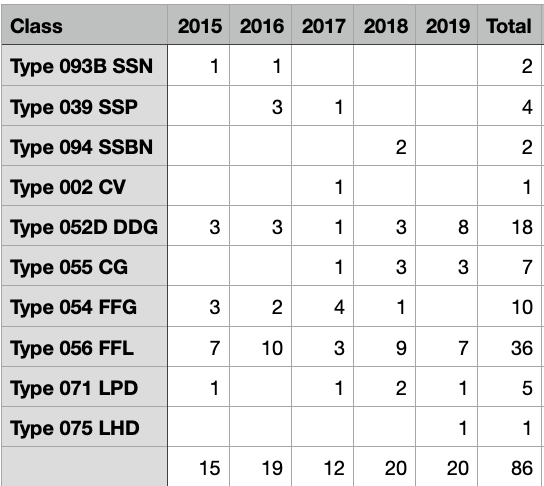
Now, many commentators have pointed out - not incorrectly - that the PLAN's ships are on average much smaller than those of the USN; that the USN remains much larger in terms of its tonnage - the sheer heft of the force as measured, essentially, by its weight.
Assuming that combat power has a somewhat comparable density among modern warships, tonnage would, indeed, perhaps be a better measure than the sheer number of hulls.
So let's take a look at the tonnage of recently built warships, instead.
So let's take a look at the tonnage of recently built warships, instead.
For the count, I again focused on warships actually launched from 2015-2019. By "warships", I included ships useful in high intensity combat or major power projection: subs, carriers, amphibious assault ships, surface combatants, & ocean going fleet auxiliaries (e.g., tankers).
I did not include patrol craft, mine warfare vessels, or ships focused on low-intensity operations (e.g., Expeditionary Staging Bases).
"Tonnage" was measured as full load displacement, in tonnes (i.e., metric tons, most data coming from Janes), times number of hulls launched.
"Tonnage" was measured as full load displacement, in tonnes (i.e., metric tons, most data coming from Janes), times number of hulls launched.
The result: by my count, over the years 2015-2019, the Chinese navy launched almost 600,000 tons of warships, the U.S. Navy, just under 400,000 tons.
Bear in mind, as well, that the US total includes about 80,000 tons of the somewhat controversial LCS and DDG-1000 classes.
Bear in mind, as well, that the US total includes about 80,000 tons of the somewhat controversial LCS and DDG-1000 classes.

It's worth considering too that the USN has worldwide responsibilities - with roughly 60% of forces allocated to the Pacific - unlike (for now) the PLA Navy. By that measure, new US warships available for the Pacific might be closer to 200,000 tons. 
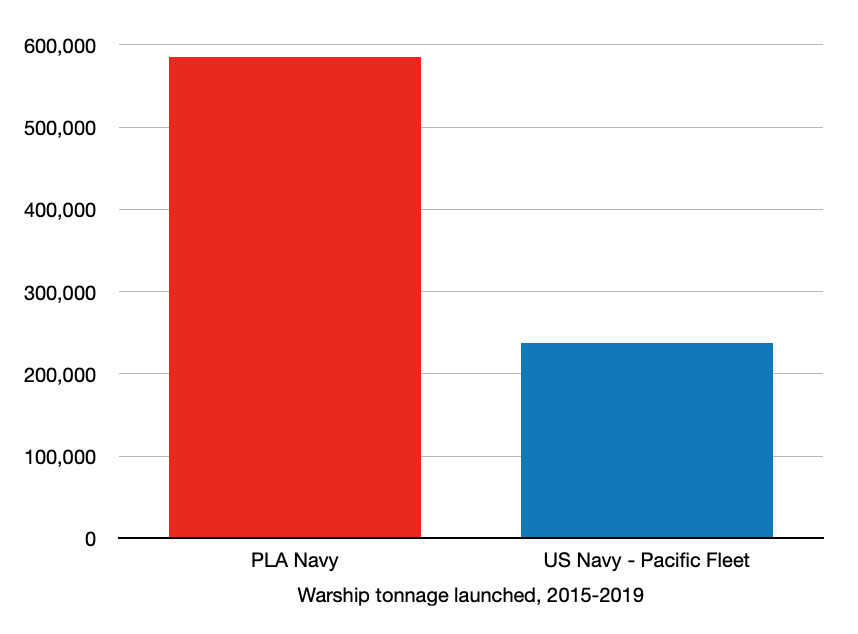
But, ah, some would say: the US has allies and partners (e.g., "the Quad") across the Indo-Pacific, and China has few. Our combined maritime power will continue to dwarf the PLAN!
The Quad's shipbuilding tonnage (w/ the US Pacific Fleet's allocation)? A little over 400,000 tons.
The Quad's shipbuilding tonnage (w/ the US Pacific Fleet's allocation)? A little over 400,000 tons.
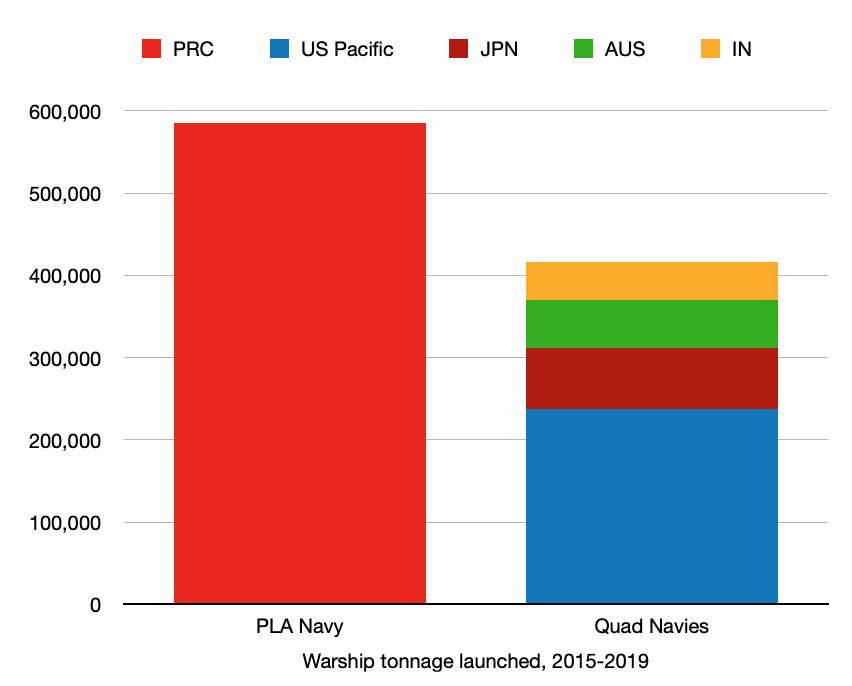
As ally/partner nation policymakers consider the rise of the PLAN, & whether to support basing missiles on their territory, they might want to consider this: the combined tonnage launched by the main non-US Indo-Pacific navies? Less than 300,000 tons. 
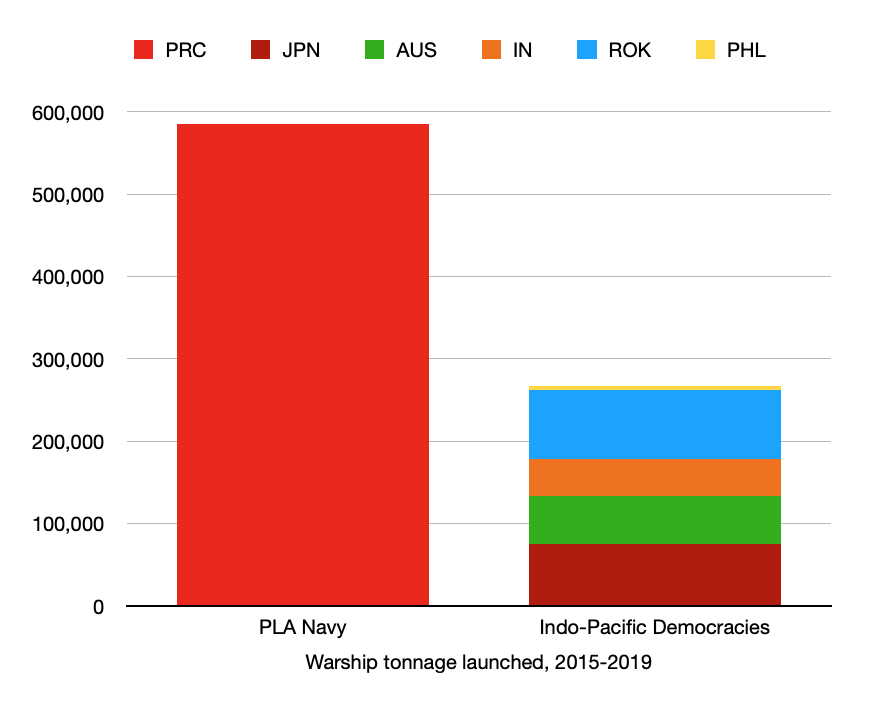
Given that the PLAN is a unitary force and that coalitions introduce natural inefficiencies (esp. with deep-seated mistrust among some of these nations), what seems clear to me is that were the US to be driven from the region, or to reduce its commitments due to lack of support..
...the likely result would be domination of maritime Asia by the PLAN (particularly when combined with the anti-ship firepower of the PLA Rocket Force).
With the great dependence on trade by sea that almost all of these regional countries share...
With the great dependence on trade by sea that almost all of these regional countries share...
...and the already-demonstrated willingness of the PRC to engage in coercive diplomacy, all concerned should understand these facts when making assessments about their willingness to make investments and support close and coordinated action among the US and other regional allies.
In summary:
Fin.
Fin.
• • •
Missing some Tweet in this thread? You can try to
force a refresh



